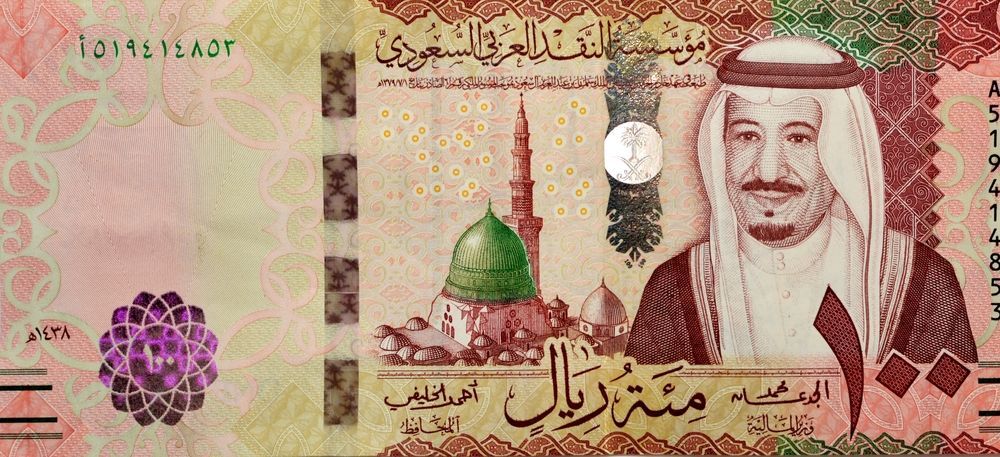Dr Ben Hanson Medical Director and Family Physician
If you are interested in working as a
Family Physician (General Practitioner)in the Middle East, particularly the
United Arab Emirates, Dr Ben Hanson FRACGP Family Physician and Medical Director shares his experiences and offers some valuable insights.
Background
Dr Hanson graduated from the University of Sydney in 1993, and obtained fellowship of the Royal Australian College of General Practitioners (RACGP) between 1995 and 2000. Since then he has completed a masters in GP Psychiatry and obtained qualifications in aesthetic and aviation medicine. Now he works as a medical director, whilst still using his clinical skills regularly in the UAE.
Q: How did you end up coming to the UAE?
Ben Hanson: I had been trying to come for about 4 years and not found the right position. I had good medical colleagues here who were telling me to be patient, not to go some of these small clinics that came and went, and to be very careful of other places because there was a high turnover, or bad morale or many other problems. So it actually took me four years of effort to finally get here, and I came via Saudi Arabia - which a lot of people do.
Q: What were the biggest differences between Dubai and Saudi Arabia?
Ben Hanson: Saudi Arabia is quite different to here (Dubai). They’re both really interesting places to work, and I can definitely recommend both of them if you’re at the right place, with the right team.
There are a lot of similarities as well, but Saudi has a very strong healthcare system, and it’s a lot more developed and probably more organised. Here in the UAE it’s a new country, but healthcare has become a big focus. Dubai in particular has a very strong strategy for healthcare, 2021 is the target for a number of key objectives to be achieved, so they’re very ambitious here, they have a lot they want to achieve and that’s one of the reasons why Western trained physicians are in demand. They bring skills to fill gaps in the healthcare market that can otherwise not be filled.
The reason this is a problem is that at the moment the Emirati people, the local people, are having to fly to Germany, to London and overseas at the expense of the Government with their families, they’re flying not only for treatment and surgery, they’re also flying for diagnosis in certain fields, so this is a huge expense, and this money is better spent developing services here and improving the quality of healthcare.
Q: What would you say to medics considering the move?
Ben Hanson: I would say to doctors who were thinking of coming to the Middle East, and particularly the UAE, don’t come for the money. The money is not that great, ok, it’s sometimes good in certain fields, but it used to be better. You come here for the experience, you come here because you want to make a difference with your clinical care. The system here is less regulated and there is a huge need for good quality medicine. So a little bit of effort, a little bit of clinical skill has a huge impact - not only on the patients, or on the patient's family, but also on the staff that you’re working with. There is a great deal of education that you can provide to the nurses, the administration staff and your other colleagues; new skills, new procedures, new methods of diagnosis.
What is also very important is the advanced ethical structure and the advanced professionalism that exists in many of the Western countries remains underdeveloped here. So there are many benefits to coming here, but don’t think about money. You would do better than what you’re earning at home, but life is expensive. Rent is expensive, school fees are expensive, the cost of living, food, restaurants, everything is expensive. So it’s not about the finances, look at it as a big adventure.
The great thing is that living here is very safe. Crime rates are extremely low, you can walk on the streets with no problem, leave your wallet on the table and it’ll still be there tomorrow. The crime levels are very, very small so you’re very safe here.
A lot of people have said to me ‘are you mad going to the Middle East?’ Being in Saudi Arabia or the UAE ‘what about terrorism, what about people not liking Westerners?’ Well it’s not the experience I’ve had at all, really I feel much more in-danger walking through central Sydney or central London at night than I do here. So you come for the lifestyle.
Q: How have you benefited from the move?
Ben Hanson: I’ve certainly learnt a lot of things being here, so many different things I thought I would never do. In my first role here I was in Saudi Arabia, I was working at a facility that was actually privately owned by the King of Saudi Arabia. It was a very high level of facility and I was doing things like running an emergency department, running an ambulance service, looking at community health, occupational health within a tight community, dealing with helicopter transfers, obviously primary healthcare, but also secondary healthcare and forming relationships with many different hospitals and healthcare providers in Saudi Arabia. I also got to meet the Minister for Health, and many other prominent people - so it was really quite an experience to be working in all of these fields whilst meeting all these different people, and in a way also being an ambassador for my own country, and for the medical profession which they hadn’t really met before.
So it was quite a great experience.
Then I moved to Dubai, and I took a role with an organisation that is part of the holding company of the ruler. It was a development trying to provide high quality healthcare, in particular providing diagnostic assessment and diagnostic care at a level people would experience in a really advanced healthcare facility in a Western country. Nothing like this was really existing here to the same level, and part of my role was setting up the clinical services and hiring the doctors.
I interviewed many, many doctors as well as other clinical staff. I was involved in helping to set up for accreditation, looking at the basic clinical governance, but also IT systems, equipment, the whole gambit way beyond what I would’ve expected.
It was a great challenge to do all these things, meet all the various people from all within the Emirate of Dubai, and all within the world as well. I’ve really learnt many different skills and been exposed to healthcare systems and doctors from all over the world.
Q: What advice would you give to people based on your experience recruiting?
Ben Hanson: When I went to Saudi Arabia my first six interviews were on Skype - which i hadn’t done before! If you’ve never done a Skype interview before it’s good to actually practice, because you need to speak very slowly, think carefully about your answers. The people on the other end here in the Middle East may not have English as their native language, and you might be speaking to people with fairly thick accents and things can get lost in translation. So it’s very important to present yourself well if you are doing one of these interviews.
Wear a nice suit or some nice clothes, don’t be in your pyjamas or with messy hair! Make yourself look nice, because when someone like me is interviewing you, if you don’t look professional right from the start, I will notice it. The patients here expect the doctors to look and act extremely professionally and that means not wearing a weekend country chequered shirt and some loafers! You really need to be very careful of your appearances as well as what you say. So that’s something to consider when you’re trying to go through the interview process here for the Middle East.
The next thing I would say is that in the recruitment process we often see 10 or 20 or 30 or 100 CVs of fairly equivalent standard clinical skills. What really makes the difference in terms of who’s hired and who’s not is communication skills. It’s having a flexible personality, a low drama personality. If you’re the sort person who likes to make complaints, and make a fuss and you’re difficult to satisfy then the Middle East is not for you. You have to be very flexible here, you have to be a very good listener, and you have to think before you speak. Also you have to be able to take a few punches, to take a few insults from time-to-time, have your pride hurt a bit and respond in a very professional way. It’s just part of living in a different culture.
The way that management works here is often more authoritarian than in some of the Western places, although from what I hear of certain places around the world it’s fairly authoritarian in various countries in the Western world too. Here it’s fairly standard.
So you have to be careful about how you speak to people, and always remember that, as the Western trained Doctor, you are held in very high esteem. People here take what you say very literally, and they remember everything you say. Don’t make promises or guarantees that you can’t keep, don’t make clinical judgements or prognostic assessments that are not realistic, because people will hold you to it. So it’s very important to think very carefully about what you say. Give very measured answers, don’t lock yourself in on timeframes, don’t lock yourself in on certain outcomes that you can then be held to account later on. Often in a fairly harsh way.
Let the wookie win. So this has been something that, from time-to-time, I’ve had to use here when you have to pick your fights, pick your battles. There are times when you’re in the right, when something’s fair and is reasonable, but you’re not going to win it.
You’re in a different culture, it’s a stratified culture, and we are guests here at the end of the day. So I always tell new doctors who come here to not be first in line, don’t be the first in the queue, don’t take the best parking space. Sit back. At the buffet let the other people go first, just be calm, sit back and watch and listen, and then you’ll enjoy the experience here much more, because it’s fascinating in the Middle East, it’s not all just local Arabic people in their dishdashas, it’s a total mix of cultures.
Dubai is predominantly an Indian populated Emirate. Pakistani, Bengali these are the main population groups. Then after that are some of the other Arabic people, and then there’s not that many Westerners here relatively. People from the UK will probably be the dominant number, but it’s certainly not what people think when they come here. You need to be able to adapt between each culture within a few seconds in your head, because a certain answer in English would be fine in one culture, but would certainly not be the answer you’d give to someone of a different culture, or it could be interpreted in a completely different way.
Listening, not judging, not coming straight to an assessment and then an outcome, but really thinking of the options that are available rather than rushing in to try and fix things is very important, because often the best solution that would apply in your own country just doesn’t work here.
Talk to people who have been here for a while, they’ll often have good ideas, so talk to a few people and you’ll normally get a consensus about what the best approach is.
Q: What are the biggest health issues in the country?
Ben Hanson: I guess I wasn’t expecting the big gaps in different areas of health here. That was the first thing, so particularly oncology, orthopaedics, paediatric surgery, ophthalmology and women’s health, in particular obstetrics. In these areas there are huge gaps. Gaps in skills, there aren’t enough highly skilled doctors and a lot of the pathology that presents, presents really late, so the doctors are seeing really advanced stages of disease. The gaps in certain healthcare is an issue.
I think the other issue is that public health itself is still very new. There’s not a lot of understanding from the community here in terms of basic health prevention. In terms of the dangers of smoking, in terms of not putting five spoons of sugar in your tea, in terms of eating way too much and getting obese, in terms of not exercising. All these basic things that we’re bombarded with in the Western countries since birth. It is really just starting here.
Also what’s missing here is a primary healthcare network. In the UAE the system is based on the American system, and there’s not a lot of primary health care in the US, it’s very much self referring to a specialist - and this was the system that was adopted here. As we all know it’s a very expensive system, it’s not very efficient, and the outcomes aren’t very good relative to the countries that have the strong primary health systems. It is also something that is being developed, so it was quite a surprise to me to see just how little primary health care there was here, and all the doctors in primary health do here is write referrals, they often don’t have skills for anything else. This is something that’s changing, and the insurers here are certainly pushing to get more of a gatekeeping model to try and contain the costs.
Q: What advice would you give medical professionals when choosing a recruiter to work with?
Ben Hanson: In certain fields there is a lot of competition between facilities, and in others there’s not much demand. I think it’s very important for people to use a reputable recruitment agency, and people who have experience here, also I think it’s important that people need to be dealing with an agency that deals with Western trained doctors, because the salaries that are offered very much depend on what your country of origin is, where you went to University and where you did your clinical training. This can have a fairly large impact on, not just the salary, but also the benefits that are offered.
I think it’s important for doctors with families who are coming here to really look carefully at the benefits being offered, because accommodation is very expensive, school fees are extremely expensive, so if you have a bunch of kids then expect a lot of your salary to be going towards the education of your children. So that’s something to keep in mind.
I’d say also look carefully at your contract, in UAE labour law there are limited contracts, and unlimited contract. If you’re on a limited one, which is fixed terms, and you’re not happy there and you resign, then you may have to pay back 1 and ½ months salary, and that’s not a good position to be in. So sometimes it’s good to get some advice if you need to from your recruiter, or if you need to speak to a lawyer or someone else.
It’s important to negotiate, not just on the money, but look carefully at the conditions, a lot of contracts have restrictive clauses that, if you leave, you can’t work anywhere within the Emirate of whatever for a certain amount of time, so be careful of some of these clauses, because they can cause you problems.
Often when people come here the first place they go is not necessarily the right choice, or it just doesn’t work out, so make sure that there’s some flexibility so you can change to somewhere else if it doesn’t work out, or if you’re not happy because, otherwise, you can be stuck here and have to leave within 30 days, and it’s not easy if you have family, and children and animals.
The other thing I’ll say is about licensing, that the licensing can be very quick, or it can take nine months or more depending on what your speciality is, and which part of the UAE or Saudi Arabia or wherever you’re going. The requirements are often convoluted, confusing, so just be aware that there can be delays at the start of your job, because the license itself is delayed, so don’t have a definite start date, because it really depends on when your license is granted, and that’s outside the control of the employer.
Q: What has been the biggest benefit for you of the move?
Ben Hanson: The clinical work has been fascinating, and the connections that I’ve made professionally have been terrific, but for me it’s actually been the connections I’ve made outside of work. Sometimes when you come to a new place, and you’re bonding with people who have come at the same time, especially if it’s foreign and a bit challenging, you really tightly bond with people, so that’s great.
Also I’ve been fortunate to get to know quite a few local people from this region, and with effort and time invested I’ve sort of been welcomed into their families. I get invited to weddings, I get invited to special events, I sit with the families and kneel on the ground with my hands sitting around the floor, and really have this wonderful cultural experience. I go to the farms, I see the camels and all these great things, and I learn the culture. I’ve learnt a lot about what’s really going on in the minds, and in health care. I know what the concerns are, and it’s quite a different social structure here.
The Western world is very much the nuclear war, divorced families, lots of people are living on their own in one bedroom apartments and isolated, and everyone’s on their phone. But here it’s still very much about the extended family, but once you get to know a few people, you get to know their brothers, their fathers and their children it’s really quite wonderful to be part of this culture. So I think, for me, learning about the culture, and making these very special connections has been the highlight.
Finding a job as an family physician in the UAE
Family Medicine is a relatively new and small speciality in the Middle East and the relatively few positions which become available to international candidates, limited and hotly contested. Employers are looking for experienced physicians who can work independently providing primary and preventative care. A knowledge of the Arabic language is helpful.
Please note that the term general practitioner is the equivalent of a non specialist house officer or registrar in other jurisdictions and in the UAE the job title family physician is used. You can read more in our article about various medical job titles to ensure that you search and apply for the right jobs.
If you are interested in finding a job in the UAE, register your CV and contact us to discuss your options.
Advertised jobs can be viewed and applications made by uploading a recent CV which should address all essential requirements as defined in the job advert.
You can gain further insights into working in the UAE by reading more case studies and in particular the following:
Abu Dhabi
Orthopaedic Surgeon - Osama Chaar
Orthopaedic Surgeon - Philipp Berdel
Dubai
Tarek Al Janabi - Emergency Medicine Physician
Blanca Rincorn Aznar - Family Physician
Al Ain
Mohamed Ismael - Endocrinologist and General Physician
Sharjah
Rebecca Phaleni - Emergency Department Senior Nurse
Share this post on Social Media
Leave a Comment
Other Blog Posts
Sign up for our newsletters with details of new job opportunities, news, insights and tips to power your career.
Join Our Community
Useful links
Looking for something?
Policies & Accreditation
Powered with ❤️ by Shazamme © Copyright Odyssey Enterprises Ltd 2024 All rights reserved











